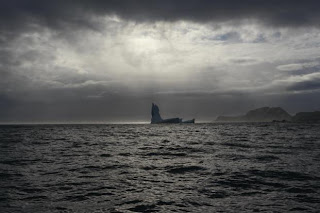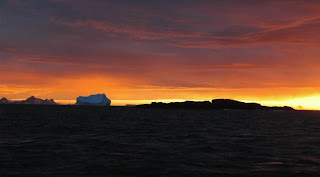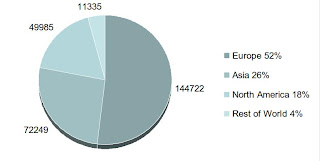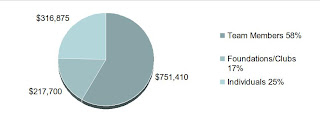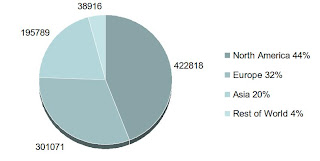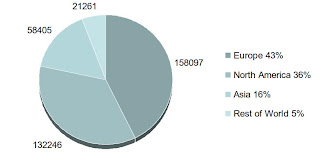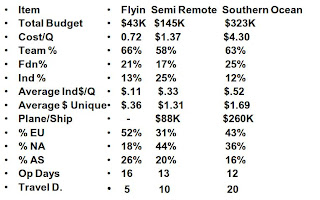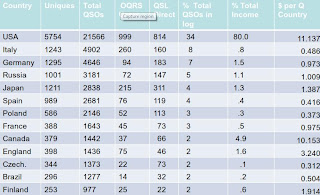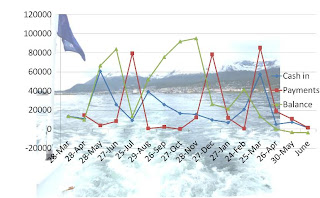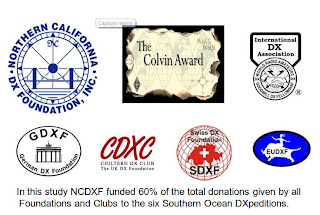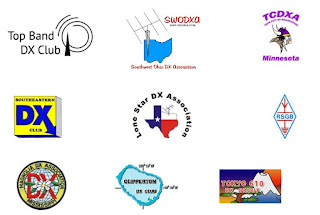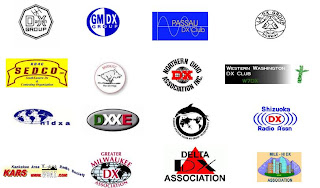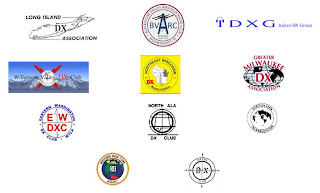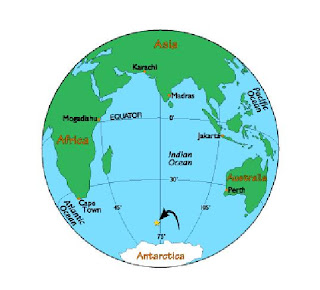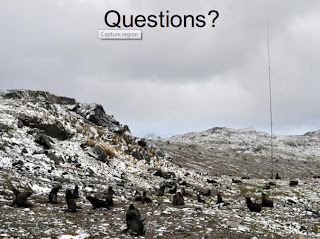Dxpedition Cost Presentation, N1DG Don
Traversing a money storm when planning a DXpedition
May 19, 2012
By N1DG, Don Greenbaum
Why This Discussion?
• Financial transparency rarely done on DXpeditions. It should be.
• If more of the ham community knew the costs and risks involved in big ticket DXpeditions fund raising might be easier.
• DX Foundations and Clubs can’t continue to do all the heavy lifting.
• Not all Dxpeditions are alike. One size does not fit all in donations.
DXpeditions go to pretty places.
The financial story is not as pretty.
Types of DXpeditions
• Visit a resident ham … Be happy, don‘t worry. $
• Fly-in. Airline served, hotels, power. … Worry about excess baggage $$$
• Semi Remote Places, ship/chartered plane. … Worry about amplifiers sinking in the deep ocean $$$$$
• The bottom of the W orld … Worry about needing an icebreaker $$$$$$$$$$$$$$$$
Methodology of Survey
• Examined 20 NCDXF funded DXpeditions since 1997.
• Sent everyone same questionaire and invited outlier costs (ie. Unique to destination)
• Confidentiality assured if requested. Few did.
• These 20 expeditions covered almost 2 million QSOs from the Pacific, Indian Ocean, Asia and Africa at a cost of $3 million.
Budget Considerations-Fly-in
• Mostly Commercial transportation.
• 5 DXpeditions analyzed, 4W 6A, A52A, VU4PB, VU7LD, and VK9DNX.
• These expeditions made 275,508 QSOs, average expedition 55,000.
• Biggest budget: $90,000, smallest $17,000.
• Average cost, $42,000, average cost per QSO: $.72. Individual contributions: 11 cents per Q/36 cents per unique callsign.
Budget Considerations-Fly-in
• Licensing in rare countries like this can be as much as 50% of the cost of the operation.
• Shipping to some of these destinations can be significant due to import duties or unreliable shipping routes.
• Travel and planning times short compared to other two levels of operations.
• This group, on average, relied on the highest % of operator funding of the budget and the lowest ratio of NA stations worked.
Flyin: The makeup of Sources of Funding
Flyin: Geographic QSOs
Budget Considerations-Semi Remote
• Private Charter of ship/plane, averaging $88,000.
• 9 DXpeditions analyzed: BS7H, K4M, K5D, T32C, VK9DW X, VP6DX, VP6T, ZL8R and ZL8X.
• These expeditions made 958,607 QSOs, average expedition 106,512.
• Biggest budget: $327,000, smallest $54,000.
• Average cost, $145,000, average cost per QSO: $1.37. Individual contributions: 33 cents per Q/$1.31 per unique callsign.
Budget Considerations-Semi Rare
• Licensing could require lengthy approval processes from government and/or fish and wildlife authorities.
• Travel and planning times significant. Average travel time to and from these locations average 10 days. Most of these operations took a year or more of planning and fund raising.
• This group, on average, had the highest % of North American contacts and the lowest % of costs by the operators.
Semi-rare: The makeup of Sources of Funding
Semi-Rare: Geographic QSOs
Budget Considerations-Southern Oceans
• Ice breaker rated ship averaging $260,000.
• Shelters and generators must survive harsh conditions.
• 6 DXpeditions analyzed: 3Y0X, FT5XO, VK0IR, VP8GEO, VP8ORK, and VP8THU.
• These expeditions made 370,000 QSOs, average expedition 74,000.
• Biggest budget: $475,000, smallest $160,000. Average team member contribution $12,700.
• Average cost, $323,000, average cost per QSO: $4.30. Individual contributions (pre/post): 52 cents per Q/ $1.69 per unique callsign.
Budget Considerations-Southern Oceans
• Licensing long and tedious process.
• Shipping and loading involves dealing with ports in South America with astronomical charges.
• Travel times mean a commitment of team members in excess of a month. In addition to large financial commitments to team, foul weather gear and airfare to departure points can add thousands in personal costs.
• Individual donations in this group amounted to the smallest % of funding of any of the groups.
Southern Oceans: Sources of Funding
Southern Oceans: Geographic QSOs
Comparing Averages
QSOs, QSLing, Donations @ VP8ORK
Timing: Cash Flow for VP8ORK
Foundation Support
Larger Clubs
Clubs
Clubs
You want to go where?
If you REALLY want to go to VK0H?
• Clear 3 years from your calendar. Find 20 rich and competent operators who can take 6 weeks off of work.
• Create a management team. First, organize fund raising. You are going to need $600-700,000. The last group to go was in 1997 and the budget was over $300,000. Things have gotten much more expensive.
• Start to request donations of equipment.
• The cost of a ship from VK (no ship can go to Heard if it has visited a French Island like last time) is going to cost at least $500,000. You need a heli, add $100,000.
• Survival tents, proper clothing, generators, fuel and shipping will easily run another $100,000.
Do you still want to go to VK0H?
Random Thoughts
• Foundations and clubs supported 24% of the cost of the 20 expeditions analyzed. If you supported one of the those mentioned above, thank you. If you don’t, please consider joining one of the organizations.
• A unique Q is worth 3 QSOs for contributions.
• NA Foundations and clubs are 80% of the money pool to these expeditions.
• NA QSOs were 36% of the total Q analyzed. W e clearly have an education process ahead of us if we want to see 3Y0/B or VK0HI again.
Questions?
 YB Land DX Club DX-ing Is Our Life
YB Land DX Club DX-ing Is Our Life



